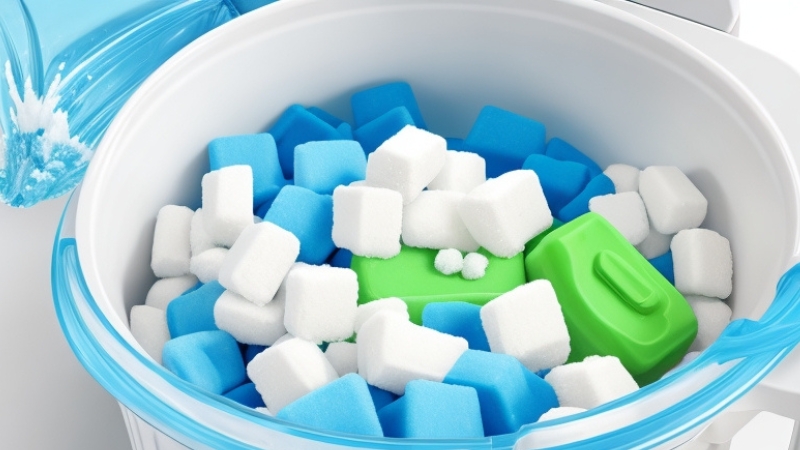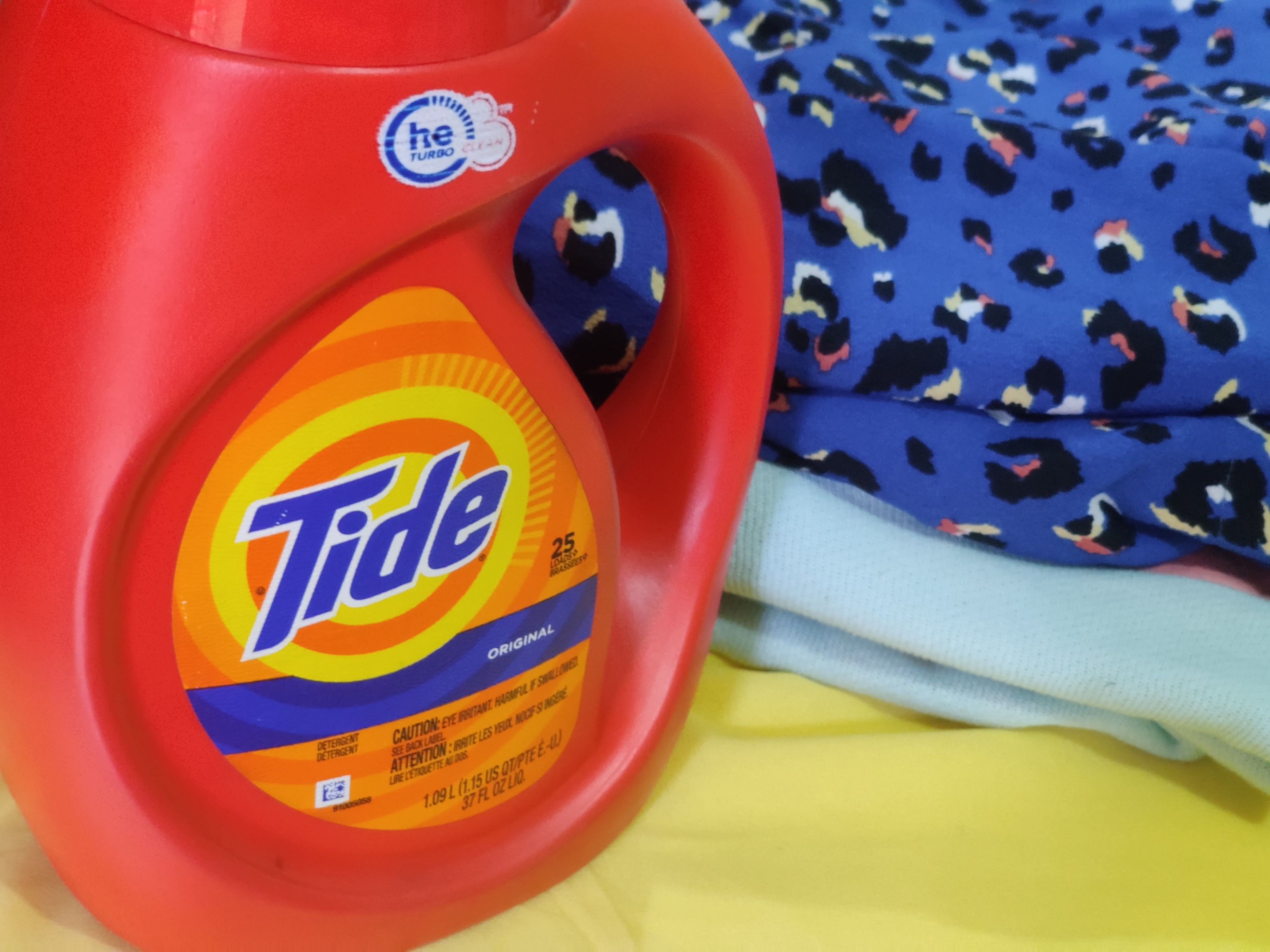Does Laundry Detergent Freeze
Does Laundry Detergent Freeze? Well, you’ve come to the right place! We’re here to explore the intriguing question: does laundry detergent freeze? Let’s dive into the world of frozen laundry and find out what happens when the temperatures drop.
Picture this: it’s a chilly winter morning, and you reach for your trusty bottle of laundry detergent only to discover it feels strangely solid. Is it possible for laundry detergent to freeze? Can it withstand the icy grip of winter? In this article, we’ll uncover the truth behind whether laundry detergent can freeze and what it means for your laundry routine.
So, buckle up and get ready for a frosty adventure as we venture into the realm of frozen laundry detergent. Whether you’re a curious mind or just want to be prepared for the colder months, this article will provide all the answers you need. Let’s get started and explore the fascinating world of laundry detergent and freezing temperatures.
 Source: laundrydetergentsoap.com
Source: laundrydetergentsoap.com
Does Laundry Detergent Freeze? Exploring the Possibilities
Laundry detergent is a staple in every household, but have you ever wondered if it can freeze? In this article, we will delve into the intriguing question of whether laundry detergent has the potential to freeze under specific conditions.
We will explore the science behind freezing temperatures, the composition of laundry detergent, and the factors that can influence its freezing point.
So, let’s dive in and discover if you need to worry about your laundry detergent freezing during those colder months!
Understanding the Freezing Point of Laundry Detergent
The freezing point of a substance refers to the temperature at which it transitions from a liquid state to a solid state. Different substances have different freezing points based on their chemical properties, and laundry detergent is no exception. Many laundry detergents are composed of a combination of surfactants, enzymes, and various other ingredients that contribute to their cleaning efficacy.
In general, most liquid laundry detergents have a freezing point below 32 degrees Fahrenheit or 0 degrees Celsius. This means that under typical household conditions, where temperatures are well above freezing, laundry detergent will remain in its liquid form. However, in colder environments, such as unheated garages or outdoors during winter, there is a possibility that the detergent may reach temperatures where it can freeze.
It’s important to note that different brands and formulations of laundry detergent may have varying freezing points. High-efficiency detergents, for example, often contain a higher concentration of surfactants, which can lower the freezing point. Additionally, gel-based detergents or those with higher water content may freeze at slightly higher temperatures compared to more viscous or concentrated detergents. Understanding these variations can help you determine the likelihood of your laundry detergent freezing.

Factors that Influence the Freezing Point of Laundry Detergent
While the freezing point of laundry detergent is generally below 32 degrees Fahrenheit, various factors can influence its ability to freeze. Here are some key factors to consider:
- Water Content: The more water present in the detergent, the lower its freezing point will be. Higher water content will make the detergent more susceptible to freezing in colder temperatures.
- Surfactant Concentration: Surfactants, such as sodium laureth sulfate, play a crucial role in detergency. They act as emulsifiers, helping remove dirt and stains from fabrics. Higher surfactant concentration can lower the freezing point of the detergent.
- Additives and Preservatives: Laundry detergents may contain additives and preservatives, such as enzymes or chemicals to enhance cleaning performance and prolong shelf life. These additional ingredients can affect the detergent’s freezing point.
- Viscosity: The thickness or viscosity of the detergent can impact its freezing point. More viscous detergents may have a lower freezing point compared to thinner liquids.
Preventing Laundry Detergent from Freezing
While there may be instances where your laundry detergent could freeze, you can take certain precautions to prevent this from happening:
- Storage Temperature: Store your laundry detergent in a climate-controlled environment, such as a laundry room or indoor cupboard, where temperatures remain above freezing.
- Insulate the Container: If you need to store detergent in an unheated area, consider insulating the container with a blanket or placing it inside an insulated box to shield it from extreme cold.
- Smaller Containers: If you frequently find yourself in freezing conditions, consider transferring your detergent to smaller containers. This way, you can thaw out smaller portions as needed without worrying about a large container freezing solid.
Does Freezing Affect the Quality of Laundry Detergent?
Now that we’ve explored the possibility of laundry detergent freezing, what does it mean for its quality and performance? Generally, freezing laundry detergent is unlikely to cause any significant changes in its effectiveness. Once the detergent thaws and returns to its liquid form, it should continue to clean your clothes as expected.
However, repeated freezing and thawing cycles may cause some separation or changes in the consistency of the detergent. This can be remedied by giving the detergent a good shake or stirring before each use to remix any separated ingredients.
It’s worth noting that freezing temperatures can potentially affect the packaging of the detergent. Plastic bottles may become brittle and more susceptible to cracking or leaking if frozen and then thawed. Always check the integrity of the container before using a frozen detergent.
Key Takeaways: Does Laundry Detergent Freeze?
- Laundry detergent can freeze, especially if it contains water-based ingredients.
- Freezing temperatures can affect the effectiveness of laundry detergent.
- If your laundry detergent has frozen, allow it to thaw before using.
- Freezing might cause the detergent to separate or change consistency.
- Store your laundry detergent in a warm area to prevent freezing.
Faqs for Does Laundry Detergent Freeze:
Yes, laundry detergent can freeze, especially if it contains water-based ingredients. Freezing temperatures can cause the liquid detergent to solidify or form clumps.
It’s important to note that not all detergents freeze at the same temperature.
Some may start to freeze as soon as the temperature drops below 32°F (0°C), while others may remain liquid until much lower temperatures. It depends on the specific formulation of the detergent.
When laundry detergent freezes, the water content inside it can expand, leading to changes in its consistency. This can result in clumps or solidified portions within the detergent container.
If the detergent freezes completely, it may be harder to pour or dispense. Additionally, the freeze-thaw process can affect the detergent’s effectiveness, altering its cleaning power or other properties. It’s best to avoid using frozen detergent to ensure optimal performance.
To prevent laundry detergent from freezing, store it in a temperature-controlled environment, such as a laundry room or utility closet, where the temperature remains above freezing point.
Avoid exposing the detergent to extreme cold or freezing conditions, such as leaving it in an unheated garage during winter.
If you live in an area with extremely cold temperatures, consider storing the detergent in a cabinet or using insulated containers to protect it from freezing.
Keeping the detergent at room temperature can help maintain its liquid consistency and effectiveness.
If your laundry detergent freezes, allow it to thaw naturally at room temperature. Avoid using any heating methods, such as microwaving or placing it near direct heat, as this can affect the detergent’s properties and potentially cause the container to burst.
Once the detergent has thawed, gently shake or stir it to restore its consistency. If there are clumps or solidified portions, you can try breaking them apart using a utensil or blending them until the detergent becomes smooth and pourable again. However, keep in mind that the freeze-thaw process may have altered the detergent’s effectiveness.
It is generally not recommended to use frozen laundry detergent. The freeze-thaw process can affect its cleaning ability and alter its consistency. Using frozen detergent may result in inefficient cleaning and may not provide the desired results.
If your laundry detergent has frozen and then thawed, it’s best to assess its condition and efficacy before using it. If there are noticeable changes in texture or smell, or if it doesn’t dissolve properly, it’s advisable to discard the frozen detergent and use a fresh, unaltered one for optimal cleaning performance.

Source: livingproofmag.com
Will It Freeze (-17 F) – Laundry Detergent
Conclusion
So, does laundry detergent freeze? The answer is yes, under certain conditions. While most liquid laundry detergents have freezing points below 32 degrees Fahrenheit or 0 degrees Celsius, factors such as water content, surfactant concentration, additives, and viscosity can influence their freezing points.
However, with proper storage and precautions, you can prevent your laundry detergent from freezing and maintain its effectiveness. And if your detergent does happen to freeze, a simple thawing and remixing will usually restore it to its original state. Now you can tackle your laundry with confidence, even in the coldest of temperatures!